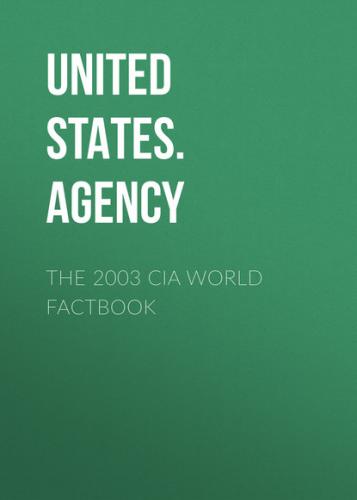Environment - current issues:
many people are landless and forced to live on and cultivate
flood-prone land; water-borne diseases prevalent in surface water;
water pollution, especially of fishing areas, results from the use
of commercial pesticides; ground water contaminated by naturally
occurring arsenic; intermittent water shortages because of falling
water tables in the northern and central parts of the country; soil
degradation and erosion; deforestation; severe overpopulation
Environment - international agreements:
party to: Biodiversity, Climate Change, Climate Change-Kyoto
Protocol, Desertification, Endangered Species, Environmental
Modification, Hazardous Wastes, Law of the Sea, Nuclear Test Ban,
Ozone Layer Protection, Wetlands
signed, but not ratified: none of the selected agreements
Geography - note:
most of the country is situated on deltas of large rivers flowing
from the Himalayas: the Ganges unites with the Jamuna (main channel
of the Brahmaputra) and later joins the Meghna to eventually empty
into the Bay of Bengal
People Bangladesh
Population:
138,448,210 (July 2003 est.)
Age structure:
0–14 years: 34.1% (male 24,255,300; female 23,007,632)
15–64 years: 62.5% (male 44,261,739; female 42,281,331)
65 years and over: 3.4% (male 2,506,606; female 2,135,602) (2003
est.)
Median age:
total: 21.2 years
male: 21.2 years
female: 21.1 years (2002)
Population growth rate:
2.06% (2003 est.)
Birth rate:
29.9 births/1,000 population (2003 est.)
Death rate:
8.63 deaths/1,000 population (2003 est.)
Net migration rate:
−0.72 migrant(s)/1,000 population (2003 est.)
Sex ratio:
at birth: 1.06 male(s)/female
under 15 years: 1.05 male(s)/female
15–64 years: 1.05 male(s)/female
65 years and over: 1.17 male(s)/female
total population: 1.05 male(s)/female (2003 est.)
Infant mortality rate:
total: 66.08 deaths/1,000 live births
female: 64.88 deaths/1,000 live births (2003 est.)
male: 67.21 deaths/1,000 live births
Life expectancy at birth:
total population: 61.33 years
male: 61.46 years
female: 61.2 years (2003 est.)
Total fertility rate:
3.17 children born/woman (2003 est.)
HIV/AIDS - adult prevalence rate:
less than 0.1% (2001 est.)
HIV/AIDS - people living with HIV/AIDS:
13,000 (2001 est.)
HIV/AIDS - deaths:
650 (2001 est.)
Nationality:
noun: Bangladeshi(s)
adjective: Bangladeshi
Ethnic groups:
Bengali 98%, tribal groups, non-Bengali Muslims (1998)
Religions:
Muslim 83%, Hindu 16%, other 1% (1998)
Languages:
Bangla (official, also known as Bengali), English
Literacy:
definition: age 15 and over can read and write
total population: 43.1%
male: 53.9%
female: 31.8% (2003 est.)
Government Bangladesh
Country name:
conventional long form: People's Republic of Bangladesh
conventional short form: Bangladesh
former: East Pakistan
Government type:
parliamentary democracy
Capital:
Dhaka
Administrative divisions:
5 divisions; Barisal, Chittagong, Dhaka, Khulna, Rajshahi; note -
there may be one additional division named Sylhet
Independence:
16 December 1971 (from West Pakistan); note - 26 March 1971 is the
date of independence from West Pakistan, 16 December 1971 is known
as Victory Day and commemorates the official creation of the state
of Bangladesh
National holiday:
Independence Day, 26 March (1971); note - 26 March 1971 is the date
of independence from West Pakistan, 16 December 1971 is Victory Day
and commemorates the official creation of the state of Bangladesh
Constitution:
4 November 1972, effective 16 December 1972, suspended following
coup of 24 March 1982, restored 10 November 1986, amended many times
Legal system:
based on English common law
Suffrage:
18 years of age; universal
Executive branch:
chief of state: President Iajuddin AHMED (since 6 September 2002);
note - the president's duties are normally ceremonial, but with the
13th amendment to the constitution ("Caretaker Government
Amendment"), the president's role becomes significant at times when
Parliament is dissolved and a caretaker government is installed - at
presidential direction - to supervise the elections
head of government: Prime Minister Khaleda ZIA (since 10 October
2001)
cabinet: Cabinet selected by the prime minister and appointed by the
president
elections: president elected by National Parliament for a five-year
term; election scheduled for 16 September 2002 was not held since
Iajuddin AHMED was the only presidential candidate; he was sworn in
on 6 September 2002 (next election to be held by NA 2007); following
legislative elections, the leader of the party that wins the most
seats is usually appointed prime minister by the president
election results: Iajuddin
